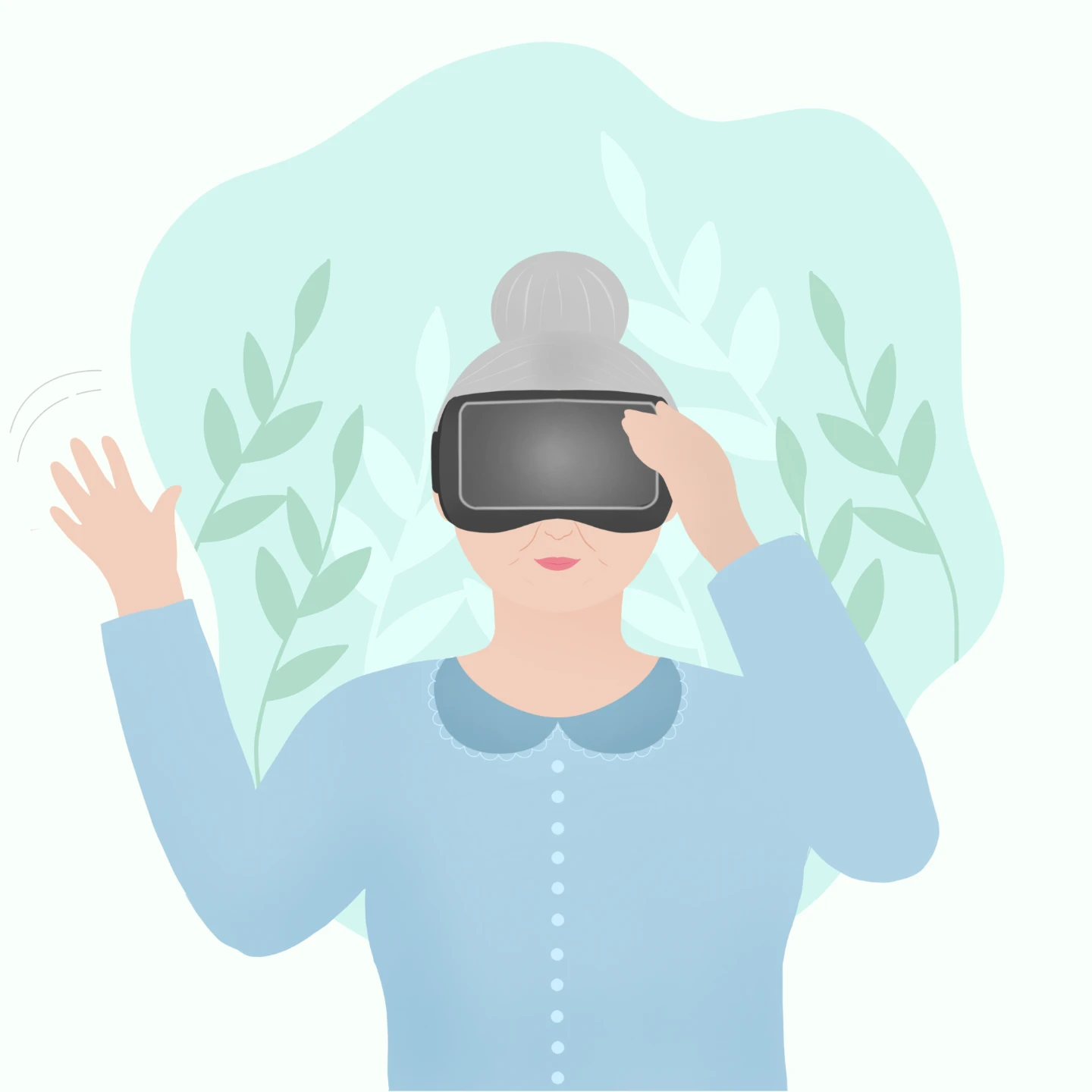innovative method of psychotherapy
innovative method of psychotherapy
Can virtual glasses help improve quality of life? According to the World Health Organisation (WHO), there are already more people aged 60+ than children under the age of 5. By 2030, it is estimated that there will already be one billion people 65+, with more than 200 million over the age of 80, while by 2050, older people in Poland will account for around 40% of the country’s total. Ian Goldin of Oxford University wrote in the Financial Times in August 2022 that there are more pensioners than children in an ever-growing number of countries, including the UK, Japan and most of Europe. Seniors need support and good care. They struggle with a range of health problems, lose fitness, are lonely and very often suffer from depression. The end of life is accompanied by physical, mental, emotional and cognitive disorders. The demand for technological solutions to support the health of the elderly is growing and will continue to grow; virtual reality tools are meeting this demand.

Research shows that virtual reality – which is developing rapidly today – can provide therapeutic and recovery support. This is supported by scientific reports related to neuroscience and mental activity that affect active ageing. Marek Kaczmarzyk – biologist and neurodidactician, says that the nicest way to treat the brain is to keep it occupied with something… new 😊 Properly prepared virtual sessions, confirmed by research, help the elderly and sick to function better in the real world. VR removes many barriers and its benefits for older, often disabled people are now being recognised by seniors’ homes, rehabilitation centres, hospitals and other institutions caring for the elderly and sick. An interesting study that looked at seniors and virtual reality conducted by the Massachusetts Institute of Technology AgeLab in 2018 found that older people who used a VR system were more likely to be positive about their health and emotions, less likely to be depressed and less likely to be socially isolated compared to those who watched similar content on TV. Additionally – nine out of ten older people said they felt more relaxed and rated their wellbeing higher after engaging in VR sessions The aim is, and should be, to improve seniors’ quality of life and make the most of virtual reality stimuli to maintain good mental and physical wellbeing on a daily basis – and this is what we are also trying to do by working on the Virtual Receptor project.
© 2024 ZUBA sp. z o.o.


